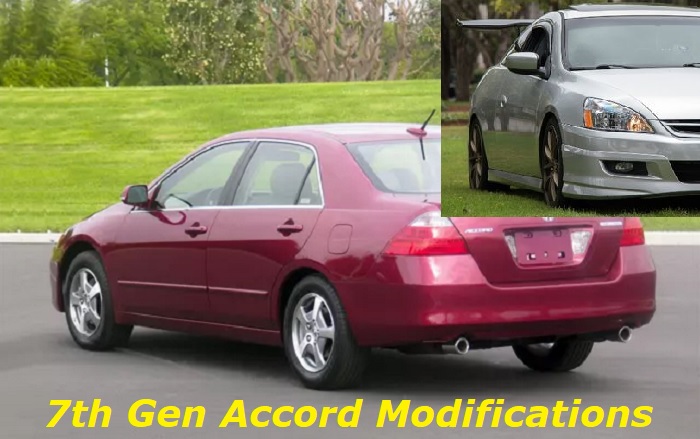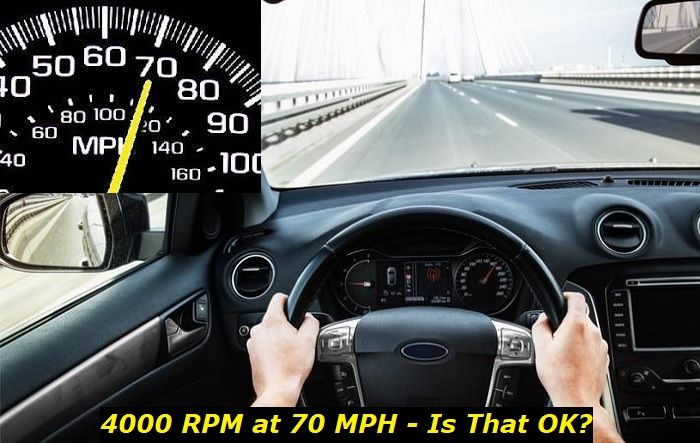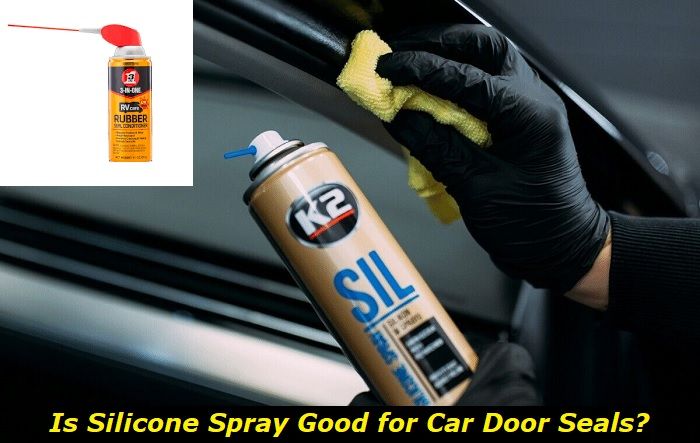It's been 15 years since the production of the seventh-generation Honda Accord came to an end. However, it really left an indelible mark in the automotive landscape because of its sophistication, reliability, design, comfort, safety, and performance. For that reason, it's one of the best-selling cars in American history. And, despite its age, you can still find people who proudly own and drive them.
Car mods and upgrades highlights
- Commonsystems:engines, interior, exterior, suspension
- Average prices:$1,500 - $7,000
- Average waiting time:7 - 21 days
- Commonreasons:higher speed, power, and visual improvements
- DIY mods:just minor visual changes
- Level of satisfaction:high

Common Mods for Better Performance
There are a few common mods that people do to their 7th gen Accords in order to get better performance out of them. These are:
a. ECU Tuning
ECU tuning is a popular mod for the 7th gen Accord. This involves reprogramming the factory electronic control unit (ECU) to extract more power from the engine. This is often done in conjunction with other mods, such as intake and exhaust upgrades.
There are a few ways to tune the ECU. The methods include the use of a handheld programmer, piggyback system, or stand-alone unit. Each has its own pros and cons, so it's important to do your research before deciding which path to go.
Handheld programmers are the most popular option because they're relatively simple to use and don't require any permanent modifications to the car. They plug into the OBD-II port and allow you to unlock the hidden potentials of your engine.
One of the main advantages of a handheld programmer is that it's easy to revert back to the factory settings if needed. They're also relatively inexpensive, making them a great choice for those on a budget. Furthermore, having a way to go back to the stock tune can come in handy if you ever need to take your car in for warranty work or emissions testing.
Piggyback systems can be more complicated to install and tune. They work by intercepting signals from the ECU and making changes to them before they reach the engine. The system manipulates the signal from the ECU to fool it into thinking that certain conditions are met when they're not. This can be used to make the engine run leaner or richer, depending on your needs.
Piggyback systems are more expensive than handheld programmers, but they offer some advantages. They're generally more adjustable and allow you to make finer tuning adjustments. They can also be left on permanently without affecting drivability.
Stand-alone units are the most expensive alternative, but they offer the most control over the engine's tuning. They replace the factory ECU entirely and allow you to tune the engine without any restrictions.
Stand-alone units are great for those who want a complete control over their engine's tuning, but they're not for everyone. They require a significant investment, both in terms of money and time. If you don't know what you're doing, it's easy to make a mistake that can result in serious engine damage.
b. Intake and Exhaust Mods
Intake and exhaust upgrades are often done together, as they can complement each other quite well. An aftermarket intake will allow your engine to get better air circulation so that it can breathe better, which can lead to more power and better fuel efficiency. On the other hand, an aftermarket exhaust will help your engine properly breathe out all the harmful gases and other impurities it has accumulated along the way. As a bonus, an exhaust upgrade can also add a nice aggressive sound to your car.
Be careful when going in this direction though because having a defective product or incorrect installation can hinder the proper airflow in your car. With that, it may damage your engine or cause problems with your auto's emissions.
c. Suspension Upgrades
There are a few different ways you can go about when modifying the suspension on your 7th generation Honda Accord. Each approach has its own advantages and disadvantages, so it's important to consider what you're looking to achieve before making any decisions.
Coilover mods let you adjust the ride height of your Accord, as well as the stiffness of the suspension. Coilovers are a great way to improve the feel of your car, and they can also help enhance its handling. However, they can be fairly expensive, and they're not always easy to install.
Another option is to install lowering springs. This will lower the ride height of your car, but it won't affect the stiffness of the suspension much. This is ideal if you're looking to improve the stance of your car without spending a lot of money, but they alone won't do much if you're looking to get better handling when driving.
If you're looking to improve the handling of your ride, one of the best mods you can make is to install a bigger front sway bar. This will help to reduce body roll, and it will make your car feel more stable when cornering. However, it's important to note that this mod can also make your car's ride height lower, so it's not something you want to do if you're not planning on lowering your car anyway.
More Unique Mods to Consider
There are some more unique and wilder mods that you can do to your 7th gen Accord to get even better performance out of it.
a. Engine Swap
One option is an engine swap. This involves swapping out the factory engine for a more powerful aftermarket engine. This is definitely a mod for more experienced Accord owners, as it can be quite complex. You have to make sure that the replacement unit fits well in your engine bay and is compatible with the other components of your car.
With a more powerful engine, you can dramatically increase the performance of your auto. your Accord will be able to accelerate faster and reach higher speeds. Additionally, you'll also enjoy better handling due to the increased output.
There are a few potential downsides to consider though before making an engine swap for your 7th gen Honda Accord. If you're not experienced with working on cars, then it's possible that you could cause serious damage to your Accord while trying to install a new engine. Another thing to keep in mind is that engine swaps can be quite expensive.
b. Weight Reduction
Another option is weight reduction. This involves freeing your car from any unnecessary weight to make it lighter and more agile. This can be done by removing things like the spare tire, passenger seats, or any unessential accessories that you have installed before.
Another way to reduce weight is by replacing the heavier components of your vehicle with lighter ones. For instance, you can replace the hood, the roof, and other panels of your car with lighter materials such as aluminum or carbon fiber.
By taking some of these measures, not only will you be able to improve the performance of your Honda Accord, but you are also making it more fuel-efficient.
Which is the Right Mod for You?
Which among these mods is the right one for you? It really depends on how much boost or enhancements you are looking for, how much budget you have, how much experience you have with modding cars, and how much risk you are willing to take.
So, if you're just getting started, then intake and exhaust upgrades, ECU tuning, and suspension upgrades are all good mods to consider. If you're looking for something more unique and challenging, then engine swaps and weight reduction are also options to be considered.
No matter what route you choose, just be sure to keep in mind the things we have discussed here, understand the pros and cons, do additional research, consult professional auto mechanics if possible, and have fun!
About the authors
The CarAraC research team is composed of seasoned auto mechanics and automotive industry professionals, including individuals with advanced degrees and certifications in their field. Our team members boast prestigious credentials, reflecting their extensive knowledge and skills. These qualifications include: IMI: Institute of the Motor Industry, ASE-Certified Master Automobile Technicians; Coventry University, Graduate of MA in Automotive Journalism; Politecnico di Torino, Italy, MS Automotive Engineering; Ss. Cyril and Methodius University in Skopje, Mechanical University in Skopje; TOC Automotive College; DHA Suffa University, Department of Mechanical Engineering






Add comment